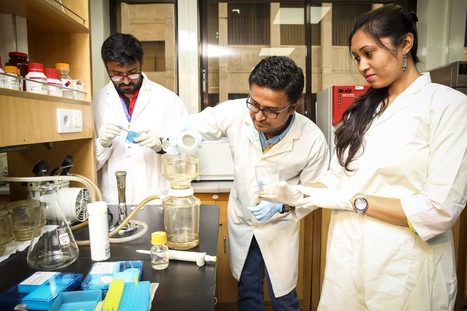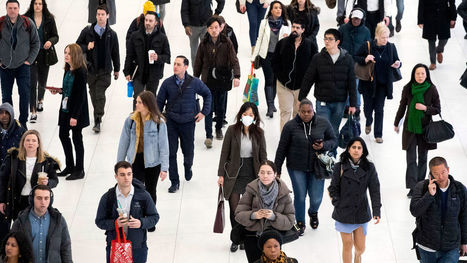All COVID-19 vaccine developers can use the network of five laboratories working together as part of centralised network to reliably assess and compare immunological responses generated by COVID-19 vaccine candidates. Five laboratories initially selected to work together as part of centralised network to reliably assess and compare immunological responses generated by COVID-19 vaccine candidate. Global group will minimise variation between individual lab analyses to enable uniform way of evaluating and identifying the most successful candidates. All COVID-19 vaccine developers (both CEPI-funded and non-CEPI funded) can use the network. In order to monitor interest and adjust the testing capacity, we are requesting that all COVID-19 vaccine developers interested in using CEPI’s centralised laboratory network complete this short survey. For any COVID-19 vaccine developer ready to submit their samples to the network, please complete our Sample Analysis Request Form.
2 October 2020, Oslo, Norway –The Coalition for Epidemic Preparedness Innovations (CEPI) has today announced partnerships with five clinical sample testing laboratories to create a centralised global network to reliably assess and compare the immunological responses generated by COVID-19 vaccine candidates. Located across multiple regions globally, the laboratories initially selected for this vaccine-assessment network are: Nexelis (Canada) and Public Health England (PHE, UK), VisMederi Srl (Italy), Viroclinics-DDL (The Netherlands), icddr,b (formerly International Centre for Diarrhoeal Disease Research, Bangladesh), and Translational Health Sciences and Technological Institute (THSTI, India). The network will use the same testing reagents—originating in the labs of Nexelis and PHE—and follow common protocols to measure the immunogenicity of multiple COVID-19 vaccine candidates (both CEPI-funded and non-CEPI funded developers). This approach will ensure uniformity in assessment and informed identification of the most promising vaccine candidates. CEPI is actively negotiating with additional laboratories to participate in this network.
Advantages of centralising immunological response assessment
Typically, the immunogenicity of potential candidate vaccines is assessed through individual laboratory analyses, aiming to determine whether biomarkers of immune response—such as antibodies and T-cell responses—are produced after clinical trial volunteers receive a dose(s) of a vaccine candidate. However, withover 320 vaccine candidates against COVID-19 currently in development, there are likely to be numerous differences in data collection and evaluation methods. This includes potential variation in the range of correlates of immunity being measured by laboratories. Technical differences in how and where samples are collected, transported and stored can also occur, impacting the quality and usefulness of the data produced and making comparisons between measurements in individual laboratories difficult. In addition, with the wide range of COVID-19 vaccine approaches and technologies currently being deployed (e.g., recombinant viral vectors, live attenuated vaccines, recombinant proteins and nucleic acids), standard evaluation of the true potential of these vaccine formulations becomes very complex.
Through centralising the analysis of samples obtained from trials of COVID-19 vaccine candidates, the new clinical-sample-testing network will minimise variation in results obtained, which could otherwise arise due to such technical differences when carrying out independent analysis. The samples from participating vaccine developers will instead be tested in the same group of laboratories using the same methods, therefore, removing much of the inter-laboratory variability and allowing for head-to-head comparisons of immune responses induced by multiple vaccine candidates.
Supporting global COVID-19 vaccine development
Through this new network, up to the limit of programme funding, eligible COVID-19 vaccine developers (both CEPI-funded and non-CEPI funded developers) can use the laboratories, without per sample charges, to analyse the immune response elicited by their COVID-19 vaccine candidates in preclinical, Phase I and Phase IIa studies. Data obtained on the immunogenicity of CEPI-funded vaccine candidates will be used to inform and advance CEPI’s COVID-19 vaccine portfolio by providing quick and accurate evaluation of its candidate vaccines. By opening the sample testing network to other COVID-19 vaccine programmes, CEPI also aims to ensure that all eligible developers—regardless of their size—can benefit from this analysis. Certain commitments may be required for eligibility, such as making timely publication of sample testing results and sharing data that will be produced on the immunogenicity of COVID-19 vaccine candidates to facilitate future regulatory decisions. The number of samples available for testing per developer may be limited depending on response...



 Your new post is loading...
Your new post is loading...









